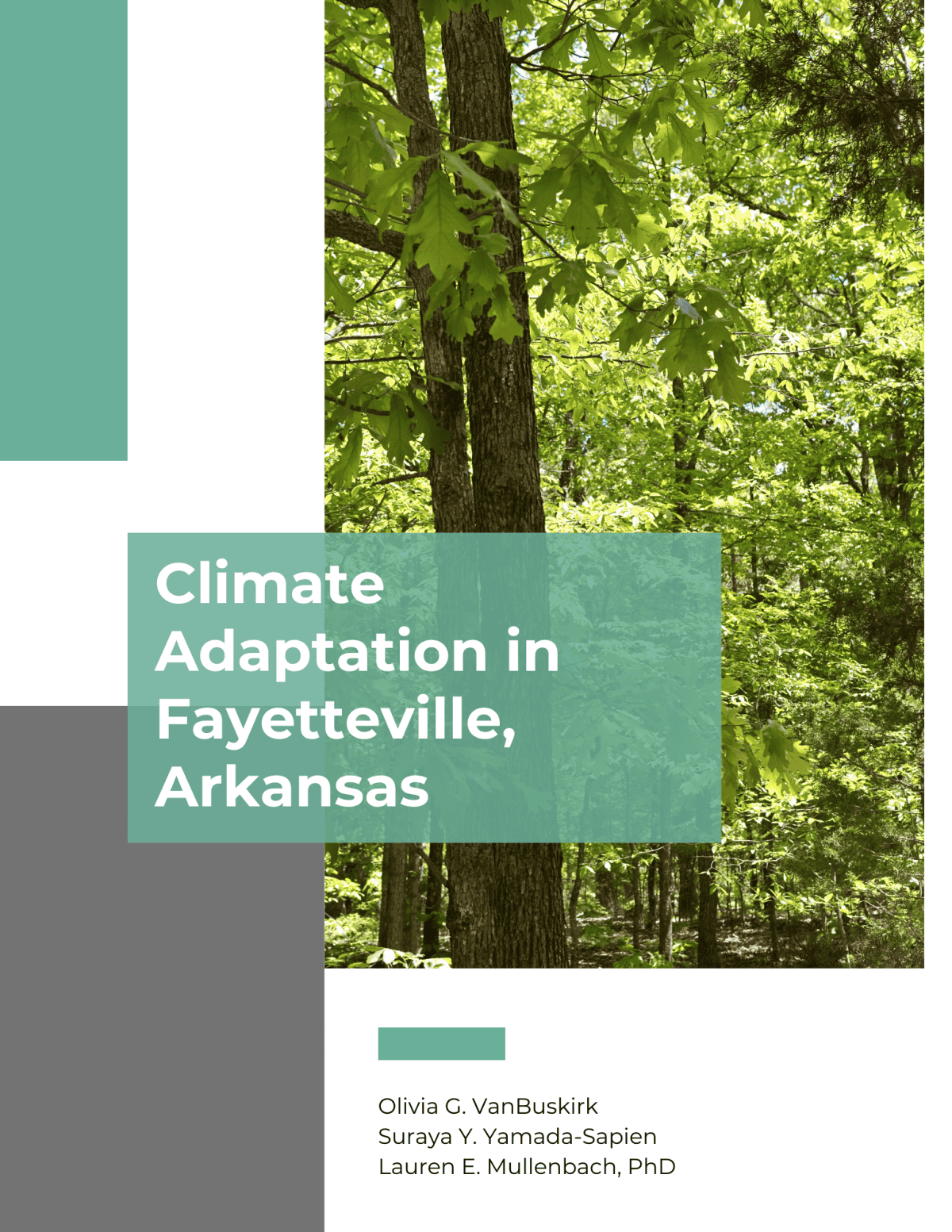
SCIPP works to understand the impacts of climate variability and change across the south-central U.S. This includes studying how cities are preparing to handle the challenges associated with climate change, while also building capacity and creating resources on climate hazards. Ph.D. student Olivia VanBuskirk, Suraya Yamada-Sapien (University of Oklahoma) and Co-PI Dr. Lauren Mullenbach, turn their attention to Fayetteville, Arkansas, and address these topics in their report entitled: “Climate Adaptation in Fayetteville, Arkansas”. The work presented in this report is part of a larger study investigating climate adaptation in three cities throughout the region: Tulsa, Oklahoma (view existing report), Fayetteville, Arkansas, and Shreveport, Louisiana.
The Fayetteville report outlines three study objectives:
- Examine climate adaptation activities in Fayetteville
- Analyze the climate adaptation planning process in Fayetteville
- Assess vulnerability
Located in Northwest Arkansas, Fayetteville is rapidly growing due to a favorable local climate, the presence of multiple corporations, and the University of Arkansas. As the city continues to grow, so does the demand for more development and affordable housing. However, the city is also interested in preserving existing undeveloped space, taking action to reduce greenhouse gas emissions, and adapting to the challenges of a warming climate. Examining climate adaptation efforts in Fayetteville offers valuable insight into the complexities faced by local governments striving to implement environmental actions, particularly within the constraints of limited resources and variable state-level support.
Overall, Fayetteville’s approach to climate adaptation planning offers a potential model for other communities facing comparable challenges. The city has introduced a range of tools, policies, and ordinances aimed at managing development and reducing greenhouse gas emissions, all while navigating the pressures of ongoing population growth and its associated demands. How Fayetteville moves forward as new people continue moving to Northwest Arkansas will have serious impacts on the climate of the local area and the region as whole. With continued action and effective governance, Fayetteville has the potential to become a more resilient and thriving community.
